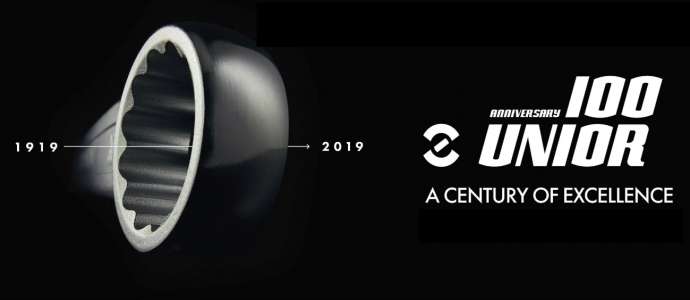STA, 13 February 2019 - A child of the ironworks that started appearing in the Pohorje hills in north-eastern of Slovenia as far back as the 18th century, forged metals and toolmaker Unior is looking back at its 100 years in 2019. Unior, whose workforce has climbed to 3,700, seems here to stay, having developed into a leading global supplier for the auto industry.
The company, originally named Styria Iron Works Company Ltd., started in 1919 as a forge in Zreče. Before World War II, it had 250 workers, who manufactured hand tools for farming, forestry and different crafts.
While the original facilities were burnt down in the war, they were rebuilt immediately after. The plant was renamed Factory of Forged Tools Zreče and passed into "state" or public ownership in 1950, remaining under indirect state ownership to this very day.
Production soon expanded to drop-forged parts, which asserted themselves in the auto industry, while operations also followed political dictate, meaning the most pressing needs of the joint country of Yugoslavia - forged tools, i.e. sockets, all types of vices, adjustable spanners, pliers, forged parts for cars, bicycles etc.
The company's current name Unior, an amalgamation of the words univerzalno orodje (universal tools), came after a 1968 worker strike that was followed by receivership and a fresh start.
By 1978, Unior asserted itself as an important partner of the automotive industry, becoming a major European manufacturer of light forgings and one of the largest European manufacturers of connecting rods for petrol engines, which positioned it among the major suppliers for companies like VW, BMW, etc.
In the same year, the company started developing and manufacturing special machines for metal processing, while construction notably also began of the Rogla health resort and sports centre and the Terme Zreče spa.
Exports of hand tools were pushed in the mid-1980s though a worldwide distribution network, which would prove crucial after the loss of Yugoslav markets in 1991.
Having braved the bumpy transition, Unior became a joint-stock company in 1997, acquired a stake in Slovenian steel producer Štore Steel a year later, and set up Ningbo Unior Forging in Yuyao, China, in 2005.
A major blow came with the crisis in 2009, which necessitated a number of measures, including a capital increase of tens of millions of euro and the promise to banks to sell the tourism division.
Plans to privatise the company also emerged but have quieted down, and Unior has been going strong after emerging from the crisis.
CEO Darko Hrastnik told the STA that Unior estimates to have generated a record EUR 165m in revenue in 2018 at the level of the core company, which employs 1,800 people.
Hrastnik expects a slight slowdown due to global trends but not a recession, with the company planning to preserve an annual growth rate of 3%-5% also in the coming years.
He highlighted Unior's connecting rods and forgings for car steering mechanisms, saying that order contracts are being signed for five to seven years in advance.
While already present, in particular with its hand tools, in over 100 countries, Hrastnik announced an additional expansion in the coming four years.
"While it was still true 20 years ago that we couldn't sell forgings to other continents, we're now also marketing our products in North and South America. If the financial resources allow, we'll continue to develop production on the American market," he said.
As the global sale of traditional hand tools is stagnating, Unior has taken on new projects, such as bicycle tools and tools for working at high voltage.
Hrastnik said that debt reduction is progressing smoothly and announced that the tourism division, which was spun off into a new company called Unitour in 2017, would likely be sold this year.
The executive said there was little news regarding attempts to privatise Unior - the last one was halted in 2017, and argued that while this created some uncertainty, it did not impact day-to-day operations.
In case a sale occurs, Unior would wish for a strategic owner, which however also allows for several scenarios given the diversity of its divisions.
"Whoever would wish to buy Unior today would buy it with all its metal programmes which do have a lot of synergy, but perhaps still not enough for some," said Hrastnik.
However, even if there is no change to ownership, which involves a number of shareholders with different interests, Hrastnik expects continuing growth or even more.
He spoke of preliminary plans to enter aluminium forging, which would mean a fourth metal division for the company and involve the potential for very fast growth.







